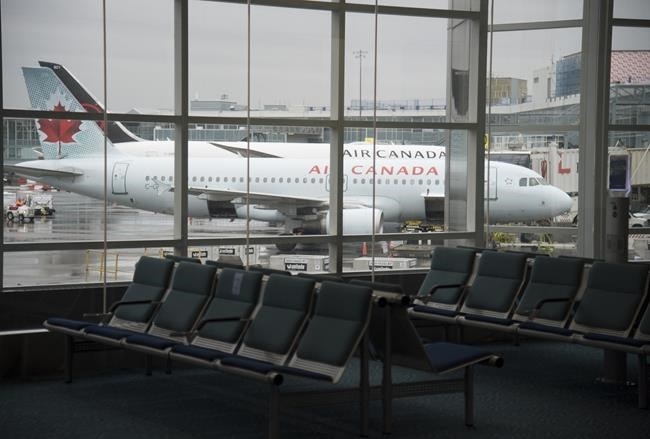TORONTO — One of Canada's best-known advocates for passenger rights said Tuesday that taxpayers don't have enough security in the $5.9-billion aid deal struck by Ottawa and Air Canada even as the airline began rolling out new refunds to ticket holders unable travel due to the COVID-19 pandemic.
One of the deal's flaws is a $1.4-billion unsecured government loan to provide those refunds to customers with unused, non-refundable tickets and vacation packages, said Air Passenger Rights founder Gabor Lukacs.
Because it's an unsecured loan, there would be "no real way" to seize assets if the company defaults on its repayments, Lukacs said.
In addition, the government gets just six per cent of Air Canada's total equity in return for $500 million, he noted, compared with a 20-per-cent Lufthansa stake for the German government.
"Overall, we see a … public message that, in Canada, it is acceptable to misappropriate consumers' money, and there will be no consequences," Lukacs said in a phone interview.
That characterization of the deal was disputed by Finance Minister Chrystia Freeland when she announced the agreement on Monday evening.
"Taxpayers aren't footing the bill," Freeland told reporters. "This is a loan facility, and the Government of Canada fully expects to be paid back.'
The federal aid package comes after months of negotiations between Ottawa and an airline industry that has been devastated by the lack of passenger air travel during the pandemic.
Air Canada's passenger numbers declined 73 per cent in 2020 following several years of record growth for the airline. During 2020, it reduced staff by more than 20,000, more than half of the pre-COVID total, then cut another 1,700 employees in January.
The Montreal-based company posted a staggering $1.16-billion loss in the fourth quarter of last year, a result that caps off what the carrier's then-CEO called the "bleakest year in aviation history."
Aside from the ticket refunds, the deal includes a number of other conditions for Air Canada to meet.
The country's biggest airline has committed to resume service at 13 regional airports as well as seven others through agreements with regional carriers.
It has also agreed to cap executive compensation, to stop dividend payments and share buybacks, to maintain staffing levels and to complete previously planned aircraft purchases of the Airbus A220 -- formerly Bombardier Inc.'s C Series -- manufactured in Quebec.
"Given the upcoming April 19th federal budget, we had been anticipating some form of announcement," ATB Capital Markets analyst Chris Murray said in a note to clients.
"Overall, we see the package as fair and manageable … ensuring Air Canada is well-positioned to emerge post-COVID to support a return to travel."
Travellers who weren't able to use their non-refundable tickets and vacation packages bought between Feb. 1, 2020 and April 13, 2021 can immediately request refunds, which the carrier says it will process as quickly as possible.
"Air Canada will be offering refunds to all eligible customers whether they cancelled their ticket or if their flight was cancelled by the airline," Air Canada chief operating officer Lucie Guillemette said in a statement.
Customers who have already accepted a travel voucher or Aeroplan points instead of cash will also have the option to exchange these for a refund, it said.
The airline said it has already provided $1.2 billion to customers with refundable tickets, which are usually more expensive than their non-refundable equivalents..
Air Canada said customers can submit refund requests online or through their travel agent. The airline will accept online refund requests until June 12 at www.aircanada.com/refund.
Air Canada has also revised booking policies for all future travel, starting Tuesday, to provide more certainty if a flight is cancelled or rescheduled by more than three hours.
All customers will have the choice of receiving a refund, an Air Canada Travel Voucher or the equivalent value in Aeroplan Points with a 65 per cent bonus, the company said in a statement.
This report by The Canadian Press was first published April 13, 2021.
David Paddon, The Canadian Press



